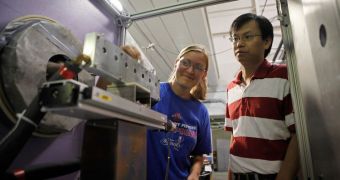Researchers at the Indiana University Bloomington have recently been awarded a $5 million grant, which seeks to promote and support next generation research into neutrons and their behavior.
The funding will fuel the Low Energy Neutron Source (LENS) at the university. Experts here will collaborate closely with colleagues from the Gaithersburg, Maryland-based National Center for Neutron Research (NCNR).
The grant money was awarded by the US National Institute of Standards and Technology (NIST), which is also the organization that operated the NCNR.
The team made up of researchers from the two groups will receive $1 million per year over the next five years, for conducting researcher into the arrangement of atoms in materials, the sizes and shapes of molecules such as proteins, and the properties of surfaces.
It is expected that the work will be very complex, but that the knowledge derived from this initiative will help forward numerous fields of scientific research.
The LENS facility is housed in the IU Center for the Exploration of Energy and Matter (CEEM). “We are delighted that the productive partnership between IU and NIST will continue, thanks to this significant new award,” explains Sarita Soni.
“CEEM's physical sciences research is very exciting, and we look forward to future developments that will come from this collaboration,” adds Soni, who is the vice provost for research at the university.
“The LENS-NCNR cooperative agreement has many advantages. It brings together the leading national facility and the leading university-based facility in the area of neutron-scattering,” says Paul Sokol.
“The joint partnership of IU and NCNR has attracted new faculty to the university and enabled research that would not have been possible otherwise,” adds the expert.
Sokol is a special advisor in physical sciences for the Office of the Vice Provost for Research, a professor of physics, and also a member of the CEEM.
“Neutron scattering plays an essential role in enhancing our knowledge of materials' structure, which is a key factor in determining the functionality of man-made and natural materials. With NIST's support, we are developing the next generation of neutron scientists,” the scientist adds.

 14 DAY TRIAL //
14 DAY TRIAL //